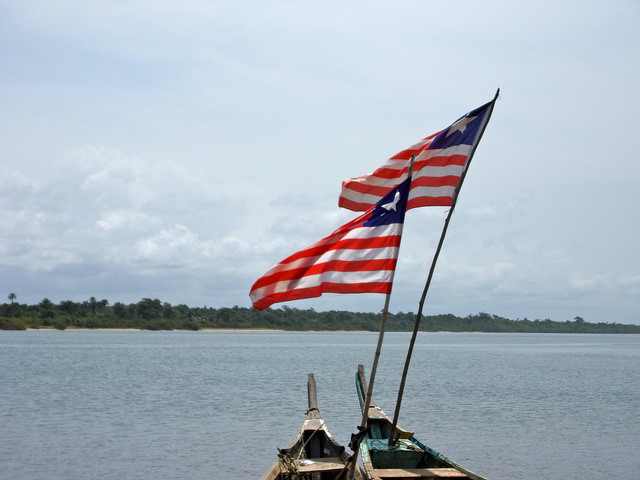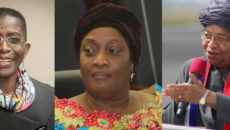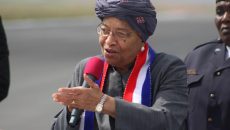Yes—I know what you’re thinking, this is a nation that has been at the bottom of every human index rating for the past decades. A nation once considered a failed state due to its prolonged civil war orchestrated by despots like Charles Taylor and his henchmen.
Okay—we get it, Liberia is in a bad spot, and I could spend my entire lifetime writing about the ills of our society: corruption, illiteracy, lazy leadership and a litany of gripes. But these things are not unique to Liberia.
These are continental issues that need to be addressed. Trust me, I’m livid at the torpid effort in addressing these ills, but indulge me here folks, as I walk you through a series of meaningful contributions made by Liberia over the years as we celebrate 169 years of independence.
Liberia has been a pioneer in women’s leadership on the continent
Ruth Perry – Chairperson of the Council of State of Liberia. Ruth Perry, an elementary school teacher and mother of seven, was the first woman to lead an African nation. Her term ran from September 3, 1996 to August 2, 1997. Prior to that, Perry served in the Liberian Senate from 1985 to 1989.
Perry attended the University of Liberia Teacher’s College and began her career in education. She married a judge and legislator and found her own voice as she participated in his election campaigns. When he passed away, his constituents urged her to run for the Liberian Senate. She did, and she won. After her senate career, Perry became involved in several women’s initiatives, one of which sought to end the Liberian Civil War.
Her political history, activism, and female perspective were assets recognized by leaders within the Economic Community of West African States, and battling warlords seemed willing to cooperate. The time had come to let a woman try her hand at peace and Ruth Perry was named as the Chair of the Council of State in an interim Liberian government.
It wasn’t easy, but under her leadership, Liberia took those first few steps toward peace. This included obtaining medicine and school supplies, educating the population about their rights, urging everyone to embrace peace, talking young soldiers into giving up their weapons, disarming 70 percent of the troops, and holding peaceful elections on time.
Angie Elizabeth Brooks-Randolph – Liberian diplomat and jurist. Angie Elizabeth Brooks-Randolph is notable for being the second female president of the United Nations General Assembly – and the only African female president of the United Nations General Assembly. She served the UN for more than 20 years starting with her appointment in 1954. She was also the first female associate justice of the Liberian Supreme Court, a position she held from 1977 through 1980.
Brooks-Randolph’s career was filled with accomplishments any woman, or man for that matter, would be proud of, long before she reached the pinnacle of becoming the president of the UN General Assembly.
Some of her other accomplishments include:
- Two bachelor’s degrees (BA Social Science and Bachelor of Law), one master’s degree (Master of Science in Political Science), and three doctoral degrees (two Doctor of Law degrees and one Doctor of Civil Law degree)
- Professor of Law, Liberia University
- Assistant Attorney General of Liberia
- Counsellor-at-law to the Supreme Court of Liberia
- Vice President of the International Federation of Women Lawyers (Liberia)
- Vice President of the International Federation of Women Lawyers (Africa)
- President of the International Federation of Women Lawyers
- Vice President of the National Liberian Political and Social Movement
- President United Nations General Assembly
One of nine children raised by a widow who worked as a seamstress, Angie Brooks-Randolph had a far-from-privileged childhood. She married as a teen, divorcing soon after. She partially put herself through college, working odd jobs such as washing dishes and laundering clothes. Later in life, she had two sons of her own and adopted 19 others. She was also a foster mother to 47 children.
Angie Brooks-Randolph passed away in 2007, but continues to inspire men and women around the world.
Ellen Johnson Sirleaf – Nobel Peace Prize winner and first elected female president in Africa.  Highly educated in the United States, Ellen Johnson Sirleaf’s early political career began as an assistant minister of finance under President William Tolbert. Samuel Doe’s coup put an end to Tolbert’s administration, ultimately killing him and sending Sirleaf into exile where she worked as an executive in international finance.
She eventually returned to Liberia, sparring with rival Charles Taylor over the years. In 2005, Sirleaf prevailed, becoming the first black woman in the world to be elected president – and the first elected female head of state in Africa.
Sirleaf shared the 2011 Nobel Peace Prize with two other women, “for their nonviolent struggle for the safety of women and for women’s rights to full participation in peace-building work.”
In addition to her many contributions to Liberia, Sirleaf is a champion for other African causes and has served as:
- Chairperson of the African Leaders Malaria Alliance
- Chairperson of the Mano River Union, an organization seeking political stability and economic cooperation among Sierra Leone, Guinea, Liberia and Côte d’Ivoire.
- Goodwill Ambassador for Water, Sanitation and Hygiene in Africa
- Founding member of the International Institute for Women in Political Leadership
- Committee member on the Organization of African Unity’s committee that investigated the Rwanda genocide
- Commission Chair for the Inter-Congolese Dialogue
- Investigator for UNIFEM on the effect of conflict on women and women’s roles in peace-building
Liberia has shown the world that nothing can keep us down
I am proud of each of these women for their leadership in Liberia, Africa, and the world. I am also proud of the Liberian people as a whole for their resiliency. Our nation was born out of hope and freedom, both of which have been seemingly in short supply over our 169-year history.
We’ve suffered through an endless barrage of bloody wars including civil wars that tore the country apart for decades, coups, assassinations, rebellions, embargos, mismanagement of resources, corruption, poverty, human rights abuses, and most recently, the Ebola epidemic. In my lifetime alone, the challenges facing Liberia have been absolutely brutal and relentless. Yet, the spirit of perseverance is alive and well in Liberia.
Each time I return to Liberia, I am amazed by this resiliency. By American standards, this country has good reason to wallow in hopelessness, but most Liberians dust themselves off and move forward, more determined than ever. Amid the rubble and poverty is a spark. Joy remains despite the crushing challenges and living conditions.
When I encounter schoolchildren learning to read, young adults just starting to find themselves, and men and women raising their families to the best of their abilities, I see what they see: a better future, one worth fighting for, one worth celebrating.
It’s been a rough 169 years for Liberians, but we remain independent and we have a lot to be proud of.
Featured photo by Erik Cleves Kristensen



